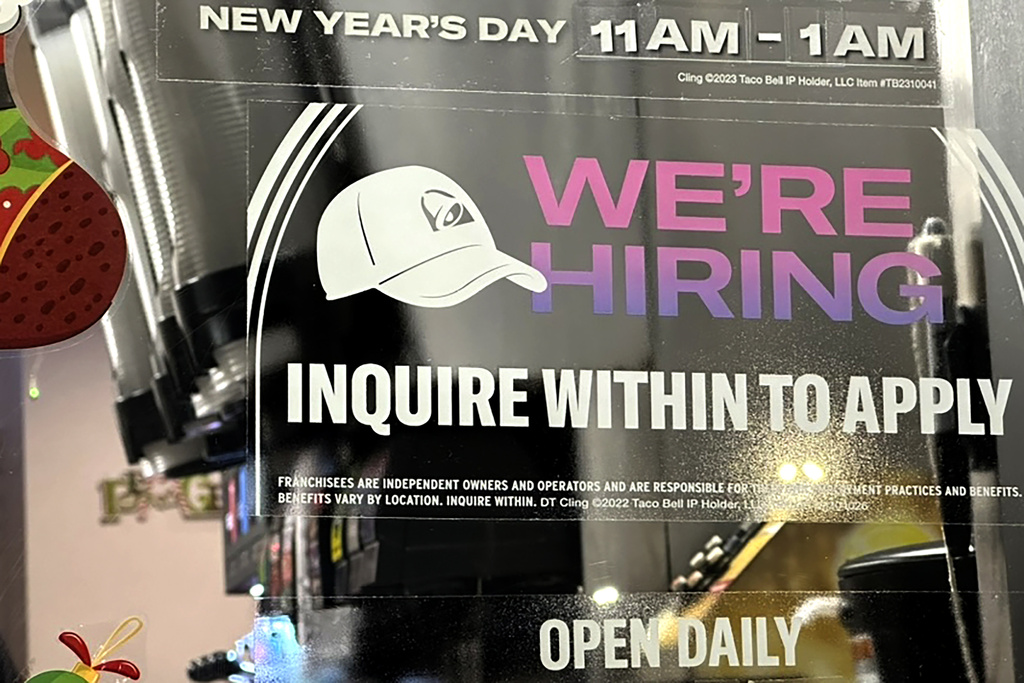The number of Americans applying for unemployment benefits rose slightly last week but still remained at historically low levels despite high interest rates intended to slow hiring and cool the economy.
The Labor Department reported Thursday that jobless claims were up by 2,000 to 205,000 the week that ended Dec. 16. The four-week average of claims, which smooths out week-to-week ups and downs, fell by 1,500 to 212,000.
Overall, 1.87 million Americans were collecting jobless benefits the week that ended Dec. 9, little changed from the week before.
Weekly unemployment claims are a proxy for layoffs. They have remained at extraordinarily low levels in the face of high interest rates.
The Federal Reserve began raising interest rates last year to combat the inflation that surged as the result of an unexpectedly strong economic rebound from the COVID-19 recession of 2020. The Fed has raised its benchmark rate 11 times since March 2022.
And inflation has eased. Consumer prices were up 3.1% from a year earlier, down from a four-decade high 9.1% in June 2022 but still above the Fed’s 2% target. The Fed has left rates alone at its last three meetings — most recently last week — and is now forecasting that it will reverse policy and cut rates three times next year.
When the Fed started raising rates, many economists predicted that the United States — the world’s largest economy — would slide into recession. But the economy and the job market have proven surprisingly resilient. The unemployment rate, for example, has come in below 4% for 22 straight months, the longest such streak since the 1960s. Hiring has slowed but remains healthy.
“The data continue to signal that layoffs remain low,” said Rubeela Farooqi, chief U.S economist at High Frequency Economics. “However, demand for workers appears to be easing; job growth remains robust but has moderated, openings have moved lower … That should help rebalance the labor market and take pressure off wages and prices, in line with (Fed) policymakers’ expectations.”
The combination of decelerating inflation and low unemployment has raised hopes that the Fed is managing a so-called soft landing — raising rates just enough to tame inflation without causing a recession.
(AP)











